 Petzlover
Petzlover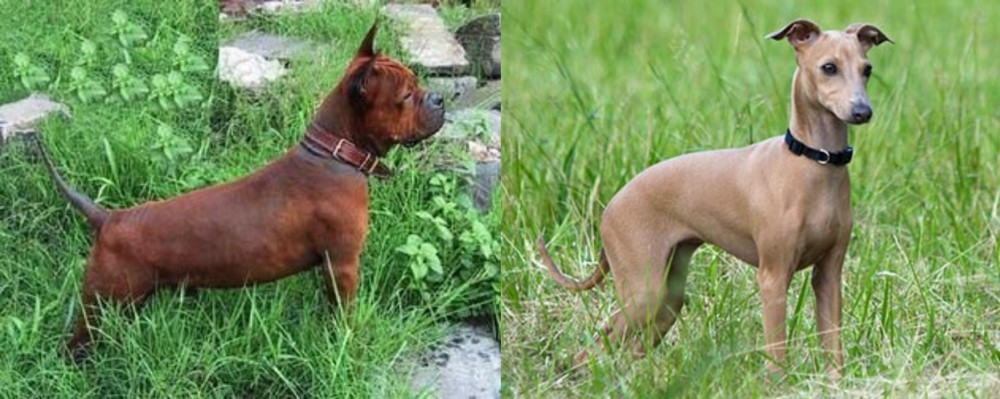 Chinese Chongqing Dog is originated from China but Italian Greyhound is originated from Italy. Chinese Chongqing Dog may grow 10 cm / 4 inches higher than Italian Greyhound. Chinese Chongqing Dog may weigh 17 kg / 38 pounds more than Italian Greyhound. Both Chinese Chongqing Dog and Italian Greyhound has same life span. Both Chinese Chongqing Dog and Italian Greyhound has almost same litter size. Both Chinese Chongqing Dog and Italian Greyhound requires Low Maintenance.
Chinese Chongqing Dog is originated from China but Italian Greyhound is originated from Italy. Chinese Chongqing Dog may grow 10 cm / 4 inches higher than Italian Greyhound. Chinese Chongqing Dog may weigh 17 kg / 38 pounds more than Italian Greyhound. Both Chinese Chongqing Dog and Italian Greyhound has same life span. Both Chinese Chongqing Dog and Italian Greyhound has almost same litter size. Both Chinese Chongqing Dog and Italian Greyhound requires Low Maintenance.
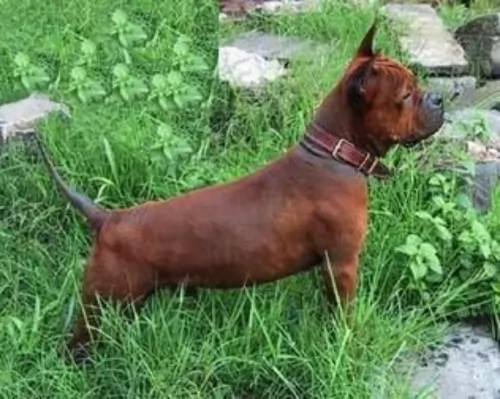 The Chinese Chongquing Dog is a very rare and unusual breed found only in China and now in Canada. The Chongquing is native to the city of Chongquing, China. This is an ancient breed that is believed to have lived in China over 2000 years ago during the Han Dynasty. It was a hunter and protector and still functions in those roles today., although there are very few left in China. Following the revolution and creation of the People’s Republic of China, the CQ Dog was only found in the rural areas of the country.
The Chinese Chongquing Dog is a very rare and unusual breed found only in China and now in Canada. The Chongquing is native to the city of Chongquing, China. This is an ancient breed that is believed to have lived in China over 2000 years ago during the Han Dynasty. It was a hunter and protector and still functions in those roles today., although there are very few left in China. Following the revolution and creation of the People’s Republic of China, the CQ Dog was only found in the rural areas of the country.
Pottery versions of the Chongquing Dog and burial figurines have been found in excavation sites from tombs of the Han Dynasty. In this isolated and mountainous area of eastern China, the dogs were unknown throughout the rest of China. Because of this the breed is relatively untouched by human intervention and is today about the same as it was 2000 years ago. There has been no interbreeding to change the natural evolution of the breed. They have their own unique personalities and temperaments.
At this time, it is believed that the Chongquing Dog is more endangered and rarer than the panda. Current breeding is diluting the breed as there are so few true bloods cross breeding and inbreeding is occurring. The knowledge of the exact breeds that contributed to the original Chongquing Dog was lost ages ago. The CQ Dog is known for loyalty, noble character, bravery and protecting its own. Today there is one kennel breeding these dogs outside China in Canada.
 The Italian Greyhound is an ancient breed, a purebred originating in Italy but with evidence to suggest it was also to be found in Turkey and Greece.
The Italian Greyhound is an ancient breed, a purebred originating in Italy but with evidence to suggest it was also to be found in Turkey and Greece.
It's a small breed dog that became popular with Italian royalty in the 16th century. Over the centuries, the dog's appearance has remain unchanged, although breeders tried to make it even smaller, leading to problems with the health of the dog.
Towards the end of the 1800s, it was fortunate that breed fanciers implemented breeding programs to restore the dog's look's and strength. The American Kennel Club registered the Italian Greyhound in 1886. Today the dog is a wonderful companion dog.
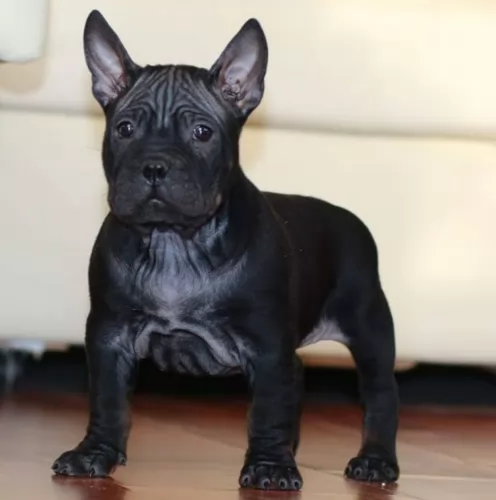 This breed is not well known, even in China. However, its likeness has been found in pottery dating back to the Han Dynasty. It is now beginning to be show in select dog shows. The general appearance upon which a current standard is being developed includes:
This breed is not well known, even in China. However, its likeness has been found in pottery dating back to the Han Dynasty. It is now beginning to be show in select dog shows. The general appearance upon which a current standard is being developed includes:
The Chongquing is a medium sized, compact and square dog that is powerful, muscular and strong. He is unique in appearance, tail and coat. His head is large, broad and flat. There are wrinkles from the muzzle to the forehead between his eyes. His eyes are brown, and the rims are black. He has high set, small ears that are triangle shape. Its frame is sturdy and strong. He is very muscular, and his strength and speed are explosive.
The Chongqing Dog can be one of three sizes: small, medium and large. All are hunters, but each hunted different prey. The appearance of all three sizes are proportionally the same.
 The sweet Italian Greyhound is much like the regular Greyhound, just smaller but every bit as sleek, elegant and fine-boned. He stands at between 33 and 38cm at the withers and weighs just 3 to 7kg. He is slender and elegant.
The sweet Italian Greyhound is much like the regular Greyhound, just smaller but every bit as sleek, elegant and fine-boned. He stands at between 33 and 38cm at the withers and weighs just 3 to 7kg. He is slender and elegant.
He has long, fine-boned legs and his short, smooth coat makes him easy to groom too. The coat comes in a number of colors such as fawn, tan, grey, reddish, chocolate and black.
Described as sweet, intelligent and playful, the Italian Greyhound adapts easily to life in the city or to country life.
He is easy to train too, and even though he is small and amicable, it is still a good idea to have him trained and socialized as he is just a simple pleasure to have around then. He just loves the company of his human family and becomes a gentle friend to other dogs, to children in the home and to the elderly.
He is a frail toy dog, and he needs to be constantly watched over that he isn’t handled roughly by disrespectful children or from bigger pets. He is an active breed and will love to be played with and join you on your walks. Even though he is such a frail, fragile looking dog, he has a feisty, stubborn, defiant side to him and that is why training and socialization becomes important. He will be reserved around strangers.
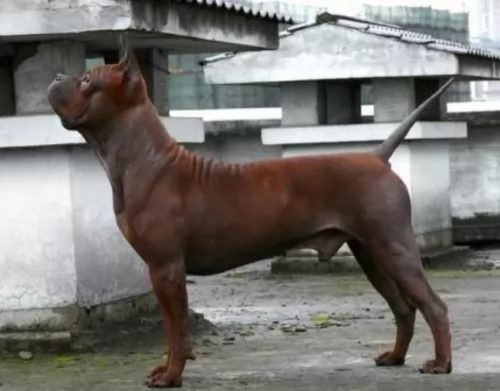 The Chongqing Dog is a confident, passionate, fearless and loyal dog. He is brave, alert, thoughtful and elegant. They make good companions for their people, but they are very wary of strangers and are ready to attack in order to protect their people. They are affectionate and loving with their people, including older children. They should never be off-leash in the company of other dogs.
The Chongqing Dog is a confident, passionate, fearless and loyal dog. He is brave, alert, thoughtful and elegant. They make good companions for their people, but they are very wary of strangers and are ready to attack in order to protect their people. They are affectionate and loving with their people, including older children. They should never be off-leash in the company of other dogs.
 If you’re looking for a sweet, gentle canine friend, the Italian Greyhound promises to be just that. They just crave human companionship and are eager to please.
If you’re looking for a sweet, gentle canine friend, the Italian Greyhound promises to be just that. They just crave human companionship and are eager to please.
He isn’t the ideal playmate for children, simply because he is frail and can get hurt easily in rough play.
Small he may be, but he is intelligent and alert, and he will bark to warn you of strangers. They are essentially indoor dogs, and when you bring one of them into your home, you’ll be rewarded with a devoted, loving and loyal canine friend.
 Your small Italian Greyhound isn’t a sickly dog breed, and in fact, with the right care, he can live to be between 10 to 14 years of age.
Your small Italian Greyhound isn’t a sickly dog breed, and in fact, with the right care, he can live to be between 10 to 14 years of age.
As with any dog breed however, there will be some more common conditions to watch for in the Italian Greyhound. Some of these are epilepsy, hyperthyroidism and periodontal disease.
There are different types and causes of seizures, and there are actually no definitive tests for epilepsy. One seizure isn’t enough to make a diagnosis and more than one seizure is usually recorded before a diagnosis can be made and treatment prescribed.
These treatments don’t cure Epilepsy but rather control the symptoms and keep the dog seizure-free so that they can have a normal life.
Seizures are not all the same – some are life-threatening and advice from the internet can’t be looked upon as adequate. With a dangerous disease such as epilepsy, excellent and qualified veterinary help will be required.
Gum disease can be terrible for your pet. Apart from bone loss and loss of teeth, your pet will experience pain. Periodontal disease may well be common in dogs, but it can be prevented.
Once an animal has eaten food, particles of food, saliva and bacteria form plaque over the teeth and this doesn’t only cause damage to the teeth but to the entire immune system.
This disease can cause inflamed gums and loss of teeth. It is important to brush your pet’s teeth with special canine toothbrush and toothpaste.
The truth is, periodontal disease can cause more problems than just tooth pain which is bad enough. Dogs with gum inflammation may be at higher risk for heart- and kidney disease too. If you’re worried about your dog, take him in to your vet for an oral examination and teeth cleaning.
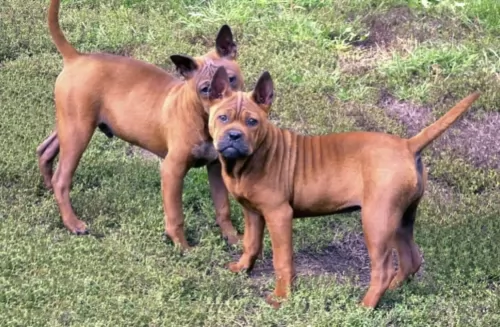 The best food for this dog is made yourself of human grade foods. Either raw or cooked yourself . This will keep their skin, teeth and coat healthy.
The best food for this dog is made yourself of human grade foods. Either raw or cooked yourself . This will keep their skin, teeth and coat healthy.
This is a really healthy breed especially due to the isolation and natural selection of their history.
He needs about 30 minutes of exercise today. He has no history of participation in canine games.
 The Italian Greyhound has a short, smooth, satin-type coat which is easy to maintain. Gently brush him once or twice a week, being careful not to press down hard as he has frail, bambi-like legs.
The Italian Greyhound has a short, smooth, satin-type coat which is easy to maintain. Gently brush him once or twice a week, being careful not to press down hard as he has frail, bambi-like legs.
He also sheds little, making him a low maintenance breed. Because of the short coat, take particular care of him in the Winter and don’t allow him to become overly cold.
Your Italian Greyhound will require a diet rich in nutritional value, and if your particular dog is quite active you will need to feed him about 450 calories a day and sometimes more.
Each dog is an individual and will have different dietary needs. If you feed your pet a top quality commercially manufactured food, read the packaging for guidance on food portion sizes.
Speak to your vet if you are unsure how to feed your dog so that his food and the amounts you feed him contribute to his good health. He must always have access to fresh, cool water.